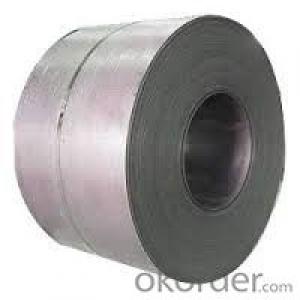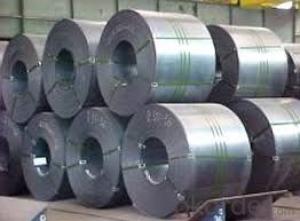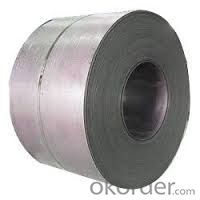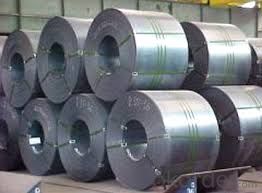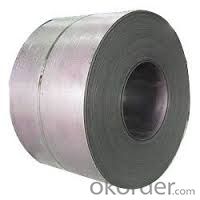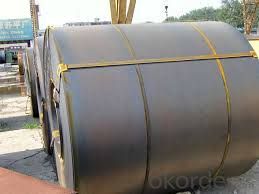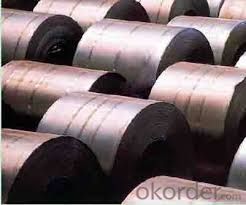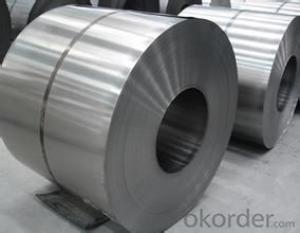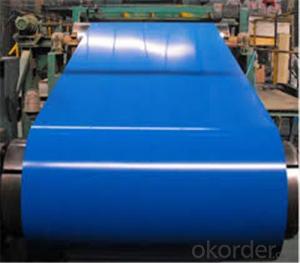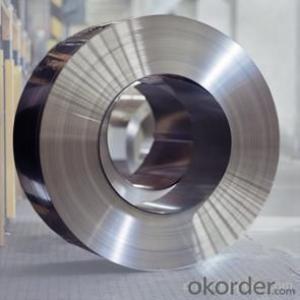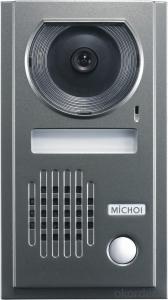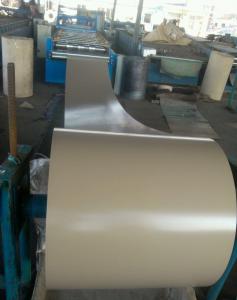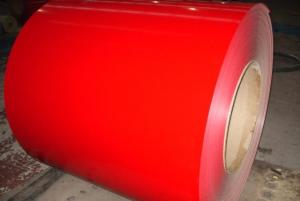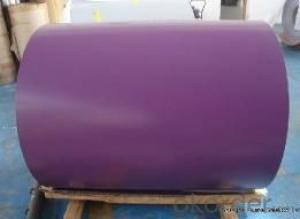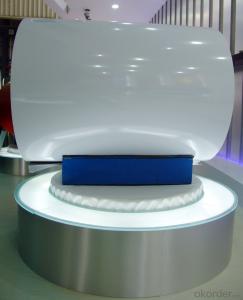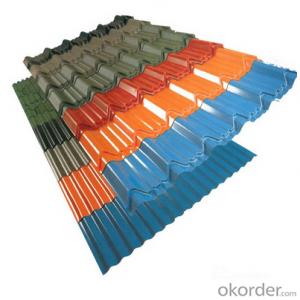Stainless Steel Coil/Sheet/Strip/Sheet /Steel - SPHC
- Loading Port:
- Tianjin
- Payment Terms:
- TT OR LC
- Min Order Qty:
- 30 m.t.
- Supply Capability:
- 500000 m.t./month
OKorder Service Pledge
OKorder Financial Service
You Might Also Like
Description of hot rolled steel:
Stainless steel is a production which not easy rust,acid resistance and corrosion resistance,so it is widely
used in light industry,heavy industry,daily necessities and the decoration industry.
Specification of hot rolled steel:
Hot Rolled Stainless Steel Coil 304 Physical Properties
Tensile strength σb (MPa) ≥ 520
the conditions yield strength σ0.2 (MPa) ≥ 205,
elongation δ5 (%) ≥ 40
Reduction of ψ (%) ≥ 50,
hardness: ≤ 187
HB; ≤ 90
HRB; ≤ 200H
Images:
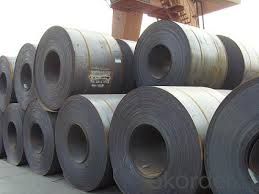
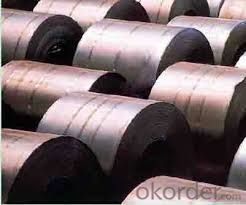
We can ensure that stable quality standards are maintained, strictly meeting both market requirements and customers’ expectations. Our products enjoy an excellent reputation and have been exported to Europe, South-America, the Middle-East, Southeast-Asia, Africa and Russia etc.. We sincerely hope to establish good and long-term business relationship with your esteemed company.
Our Hot-Rolled Steel Sheets and Coils are applied to a wide range of uses such as automobile, electrical appliance, machinery manufacturing, container manufacturing, shipbuilding, bridge, pipeline, and receive high acclaim from our customers for its excellent quality.
- Q: A friends of mine says he has balls of steel and i told him i would melt em off with lava. He said it wouldnt work. i disagree
- united is right! its hard to tell the temp... Because lava is not just obsidian, or pillow lava... its several different types of elements. It just depend on ground chemistry.
- Q: On a free standing carport with an 8 inch, 22 foot long aluminum i-beam, would a steel 8-inch i-beam be just as strong? I am looking into it since they are cheaper.
- Yes-- just make sure that your connection to the beam is secure. Since you call it an I beam -- I assume that it is steel. Don't do any drilling -- use two heavy duty c-clamps to hang your bar from.
- Q: What's the best material for color coated steel coil?
- Color steel roll is a kind of composite material, also called color coating steel plate. It is produced by continuous coating on the production line by surface degreasing and phosphating etc. after being coated with organic coating, the product is made by baking. Color steel roll is a composite material, both steel and organic materials, both of them a little. Both the mechanical strength of steel plate and easy molding performance, but also organic materials, good decoration, corrosion resistance.
- Q: Explain how you could make plastic sink and steel float?
- you can use the steel to make a hollow box, or a ship. There are thousands of steel ships floating in the oceans. plastic, specific gravity ranges from 0.6 to 2, so the higher density ones will sink. Here are some that will sink: Nylon (Polyamide) 1.15 g/mL Plexiglass (Polymethylmethacrylate or PMMA) 1.19 g/mL Lexan (Polycarbonate) 1.2 g/mL PVC (Polyvinyl chloride) 1.16-1.38 g/mL PETE (Polyethylene terephthalate) 1.38-1.39 g/mL .
- Q: How are steel coils used in the production of scaffolding?
- Scaffolding production heavily relies on steel coils as they serve as the primary raw material for manufacturing various components of scaffolding systems. These coils, typically composed of high-quality steel, are processed through cutting, shaping, and welding operations to obtain the desired dimensions and shapes for scaffolding components, including vertical and horizontal tubes, diagonal braces, and base plates. The main structural elements of scaffolding are the tubes and pipes formed from steel coils. These elements are responsible for constructing the framework of the scaffolding, comprising vertical uprights or standards, horizontal ledgers, and transoms that connect them. By providing strength, stability, and load-bearing capacity, these components ensure the safety of workers operating at elevated heights. Furthermore, diagonal braces, an essential part of scaffolding, are manufactured from steel coils. These braces are strategically installed diagonally between the vertical standards to reinforce the scaffolding structure, adding extra support and stability to prevent swaying or collapsing. Another crucial component produced from steel coils is the base plate. These plates serve as the foundation for the scaffolding structure, offering a solid and stable base to evenly distribute weight and load. Typically positioned at the bottom of each vertical standard, they play a vital role in maintaining stability and preventing sinking or sliding. To summarize, steel coils play a fundamental role in scaffolding production. Through their transformation into tubes, pipes, braces, and base plates, they form the framework and provide the necessary strength, stability, and load-bearing capacity for safe and efficient scaffolding systems.
- Q: What are the common applications of coated steel coils?
- The excellent properties and versatility of coated steel coils make them suitable for a wide range of applications in various industries. Some common uses of coated steel coils include: 1. Construction industry extensively employs coated steel coils for roofing, cladding, and wall panels. The coating ensures long-lasting structures by providing superior corrosion resistance, durability, and weatherability. 2. In the automotive industry, coated steel coils are widely used for manufacturing body panels, bumpers, and chassis parts. The coatings enhance aesthetics, protect against corrosion, and improve paint adhesion for a flawless finish. 3. Coated steel coils find utility in the production of household appliances like refrigerators, washing machines, and ovens. The coatings provide an attractive, smooth finish while protecting the steel from moisture and environmental factors. 4. Heating, Ventilation, and Air Conditioning (HVAC) systems commonly utilize coated steel coils for manufacturing ductwork, air handling units, and heat exchangers. The coatings ensure resistance against corrosion and improve system efficiency. 5. The furniture industry also makes use of coated steel coils for manufacturing cabinets, tables, and chairs. The coatings provide a decorative finish while protecting the steel from wear and tear. 6. Electrical equipment production, including switchboards, control panels, and enclosures, involves the use of coated steel coils. The coatings provide insulation and protection against electrical conductivity, ensuring durability. 7. In the packaging industry, coated steel coils are used for manufacturing cans, containers, and closures. The coatings act as a barrier against moisture and prevent contamination, ensuring the preservation and safety of packaged products. In conclusion, coated steel coils offer corrosion resistance, durability, aesthetics, and protective properties, making them suitable for various applications across industries. From construction to automotive, appliances to furniture, and even in electrical equipment and packaging, coated steel coils play a crucial role in delivering high-quality products and ensuring long-lasting performance.
- Q: What are the different methods of corrosion protection for steel coils?
- There are several different methods of corrosion protection for steel coils, each with its own advantages and disadvantages. 1. Coating: One of the most common methods is to apply a protective coating to the steel coils. This can be done through a variety of techniques such as hot-dip galvanizing, electroplating, or painting. Coatings provide a barrier between the steel surface and the corrosive environment, preventing direct contact and thus reducing the risk of corrosion. 2. VCI (Vapor Corrosion Inhibitor): Another method is the use of VCI materials, which release chemicals that inhibit corrosion when in contact with the steel surface. These materials can be applied as coatings, films, or papers, and are particularly useful for long-term storage or shipping of steel coils. 3. Cathodic Protection: This method involves the use of sacrificial anodes or impressed currents to protect the steel coils. Sacrificial anodes, typically made of zinc or aluminum, are connected to the steel surface. These anodes corrode instead of the steel, sacrificing themselves to protect the coils. Impressed current systems use a direct electrical current to prevent corrosion on the steel surface. 4. Wrapping and Packaging: Proper wrapping and packaging of steel coils can also provide corrosion protection. This includes using moisture barrier films, desiccants, or absorbent materials to reduce the moisture content around the coils. Additionally, ensuring adequate ventilation and avoiding contact with other corrosive substances can help prevent corrosion. 5. Environmental Control: Controlling the environment in which the steel coils are stored or used is crucial for corrosion protection. This may involve maintaining proper humidity levels, controlling temperature, and managing air quality. By minimizing exposure to corrosive elements such as moisture, salts, or chemicals, the risk of corrosion can be significantly reduced. It is important to note that the choice of corrosion protection method depends on various factors such as the specific application, budget constraints, and desired lifespan of the steel coils. A combination of these methods may also be used to provide enhanced protection against corrosion.
- Q: Which movie is better and why?I say Man of Steel!
- Captain America: The First Avenger
- Q: How can I owe a Pre-engineered Steel Building?
- You just have to do small efforts for owing a steel building: Firstly you have to finalize a steel building company for construction work. After finalizing the steel building company, the next step is the paperwork - the agreements and contracts. Some steel building companies may also ask for a verbal approval for the factories to get the work started.
- Q: How do steel coils perform in high-temperature applications?
- Steel coils perform well in high-temperature applications due to their excellent heat resistance and structural stability. The high melting point of steel allows it to maintain its strength and shape even at elevated temperatures, making it suitable for various industries such as automotive, construction, and manufacturing. Additionally, steel coils can withstand thermal expansion and contraction without warping or deforming, ensuring reliable performance and durability in extreme heat conditions.
Send your message to us
Stainless Steel Coil/Sheet/Strip/Sheet /Steel - SPHC
- Loading Port:
- Tianjin
- Payment Terms:
- TT OR LC
- Min Order Qty:
- 30 m.t.
- Supply Capability:
- 500000 m.t./month
OKorder Service Pledge
OKorder Financial Service
Similar products
Hot products
Hot Searches
Related keywords
